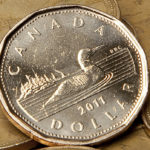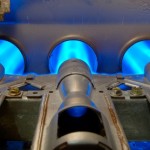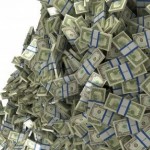Gold and silver prices were higher during midday trade in Europe, as geopolitical tensions around the globe stokes safe haven demand. Israel, Ukraine and Iraq were all in focus, as traders hedged against risks for the weekend. Meanwhile, copper futures were steady as China reported a drop in imported metal.
Gold futures for delivery in December were up 0.26% to trade at $1 315.9 per troy ounce at 12:06 GMT on the COMEX in New York. Prices ranged from $1 310.0 to a two-week high of $1 324.3 per troy ounce. The contract added 0.33% yesterday and is headed for a ~2.5% weekly increase.
Meanwhile, silver futures for September delivery were up 0.35% at $20.060 per troy ounce. The contract lost 0.17% on Thursday, and is headed for a ~2% weekly loss.
Iraq was again in the spotlights of financial markets, after US President Barack Obama announced the US will be carrying out air strikes on militants of the Islamic State (IS), should they threaten its personnel in autonomous Kurdistan in the north of the country. President Obama dismissed the possibility of sending in ground forces, saying he would not let the US be dragged in another war in Iraq.
The move comes as the international community was growing more concerned with the security of civilians in Iraq, with UN Secretary-General Ban Ki-moon saying he was “deeply appalled”, and Pope Francis urging the international community to do more to protect innocents.
Elsewhere, Russia responded to Western sanction by introducing its own limitations to foreign trade on Thursday. Russian Prime Minister Dmitry Medvedev said Russia bans the import of meat, fish, dairy products, fruit and vegetables from the US, EU, Canada, Australia and Norway for a period of 1 year.
Meanwhile, NATO chief Anders Fogh Rasmussen said Ukraine’s freedom and future were “under attack,” promising support against Russian “aggression”, the BBC reported. Russia “should not use peace-keeping as an excuse for war-making.”
In a day of intense geopolitical tensions around the globe, the conflict in Gaza flared back to life, after the 72-hour truce expired without an agreed extension late on Thursday. Renewed rocket attacks and Israeli air strikes marked the resumption of military actions.
Israel had proposed an unconditional extension to the ceasefire, demanding a full demilitarization of Gaza in order to lift the suffocating blockade of the enclave. Hamas declined the offer, saying its fighters are ready for a “long war”.
Since the conflict sparked back to life exactly one month ago, more than 1800 Palestinian, mostly civilians, and 67 Israelis have died.
Copper
Copper futures for September delivery traded at $3.1765 per pound, up 0.02%. The contract added 0.32% yesterday, and is headed for a ~1.2% loss this week.
China, the worlds leading market for copper, accounting for about 40% of total demand, posted monthly foreign trade data today. Export surprisingly soared 14.5% on an annual basis in July, while imports dropped 1.6% from a year ago, also to the markets’ surprise. More importantly, copper imports dropped 2.9% on a monthly basis in July.
“The Chinese import number is punching the copper prices lower, and given that we have a war of sanctions between Russia and the West, it can only translate as weakness for copper demand,” Naeem Aslam, chief market analyst at Ava Trade, said for Reuters.
Previously, weakening industrial production in Germany failed to pressure the red metal further yesterday, as prices were already quite depressed by a strong US dollar.
Copper, like gold, is mostly dollar-denominated and a stronger dollar lifts the price of the metal for foreign currencies, lowering its overall appeal.





